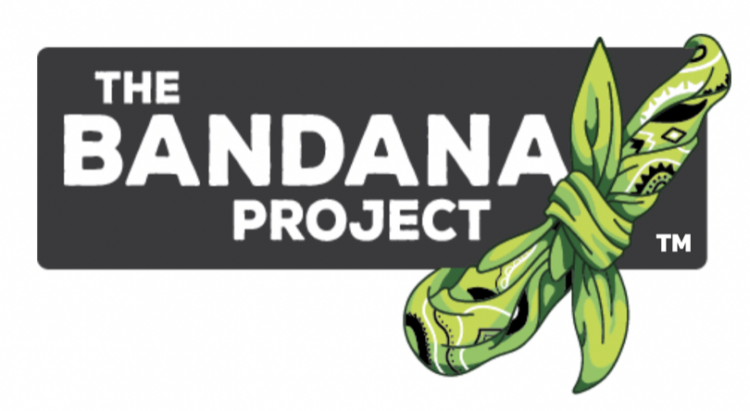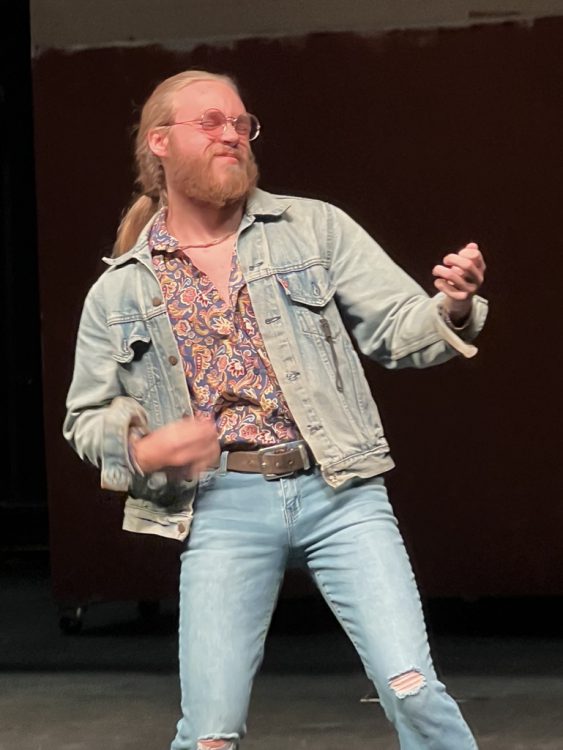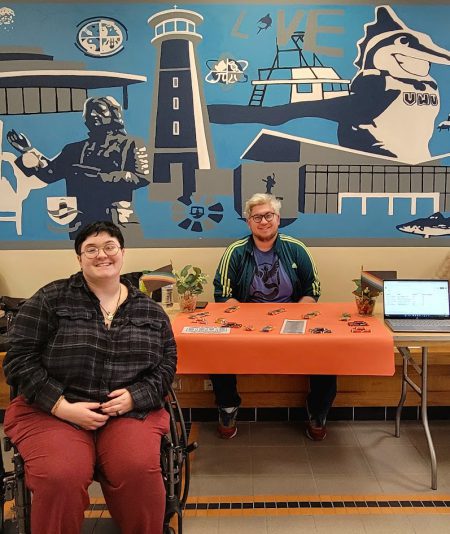Featured Image: The Bandana Project | Courtesy
Mental health awareness and suicide prevention campaign, the Bandana Project, attracts interest and welcomes new members.
The Bandana Project is a public health initiative focused on mental health for college students. The goal of the project is to prepare students through training sessions to be able to support their peers in instances of mental health distress. The project also seeks to connect students with mental health resources that can be shared with others.
The project is organized for students to attend the training sessions and subsequently receive both a lime green bandana and printed cards with a list of mental health resources to give out. The purpose of the signature lime green bandana is to serve as a signal that a student is a mental health advocate.
Participants in the project are those who are open to talking about mental health challenges that students may be facing, and the bandana is a simple yet recognizable representation.
An attractive feature of the Bandana Project is that anyone can participate. Any student, staff or faculty member can sign up to attend one of the training sessions which tend to be about an hour long, and at the end bandanas and resource cards are distributed.
Training sessions review communication and active listening skills; they also provide instruction on how to help someone in an emotionally vulnerable state and supply resources that can be used to direct students.
These training sessions do not provide any sort of mental health licensure but they allow students to better support their peers that are dealing with mental health challenges.

One of the characteristics that make the project so inclusive is that the bandana, which is carried as a symbol of mental health advocacy, can easily be removed. Students have the option to publicly display their involvement in the project or if they do not have the mental capacity to be an advocate they can remove the bandana until they feel ready.
“Everyone has times where they’re struggling too much to have those talks,” participant and junior Alex Cain said. “If you’re ever in a position where you have too much on your plate, you just take your bandana off and you don’t have to worry about it.”
This aspect provides flexibility for those who are involved. Those who want to take the training to learn about options for mental health services can attend without feeling pressured to be a public mental health advocate.
“The only thing we ask is to take a pledge of ‘I’m going to take care of my own mental health while supporting someone in a non-judgmental way,’” Director of Counseling and Student Health April Christman said when asked what is required to participate.
The Bandana Project was started in January 2016 at the University of Wisconsin-Madison campus. According to the Bandana Project website, the initiative was originally started by a student to complete their Master’s project. Since then, the Bandana Project has become one initiative among the “SAVE” family of programs that are available for mental health awareness and suicide prevention.
In 2021, Christman searched for mental health programs to introduce on campus. She came across the Bandana Project and instituted the program that same year. Student and faculty response and turnout for training sessions have been so encouraging that the project continues to develop here at VWU.
Since the project started, participation has grown and attendance at training sessions is required for residential assistants and many sports teams or club leaders. These trainings provide preparation for student leaders in the case that another student seeks their support.
“I originally had to go because it’s required if you’re leading a club here but I really liked the message and I have been involved since,” leader of the Ukulele Jam Club and junior Makenna Good said.
The Bandana Project not only raises resource awareness but also reminds students that everyone struggles and that sometimes people just want someone to listen to them.
The green bandana doesn’t only function to signify that a student is available to talk but also acts as a representation of fighting the social stigma surrounding giving or receiving mental health support.
Many college students are often unaware of their options regarding mental health services and may be intimidated due to the negative stigma that prevails around receiving professional help regarding mental health. The Green Bandana Project seeks to bridge the gap between student concerns and receiving help.
“It’s kind of like fighting that stigma and being the most important link of the chain to get someone help,” Christman said.
Building a community that actively supports each other in their individual mental health journeys has been proven to be essential, especially during transitional times such as college. Initiatives like the Bandana Project serve as a way to build that support and allow students to recognize that everyone faces challenges.
“It’s kind of cool walking around seeing a bunch of people with green bandanas on their backpacks, it shows that you’re not alone,” Student Government Association President Eddie McDonald said.
The distinguishable symbol of the green bandana provides a sense of unity among students who may not even know each other.
Since its initial introduction at VWU in 2021, the Green Bandana Project has had 102 people participate in the training. The general hope for the project is that involvement will continue to grow and that students will become more aware that there is help available allowing them to be advocates as well.
Training sessions continue to be held every semester including one that recently happened at the beginning of the semester and another that will occur later.
The Bandana Project serves to provide students on campus with multiple resources to rely on during mental health challenges. It seeks to create a safe community in which seeking help is not stigmatized and mental health issues are not ridiculed or judged but considered with sympathetic concern.
Breanne Bessette
bebessette1@vwu.edu


